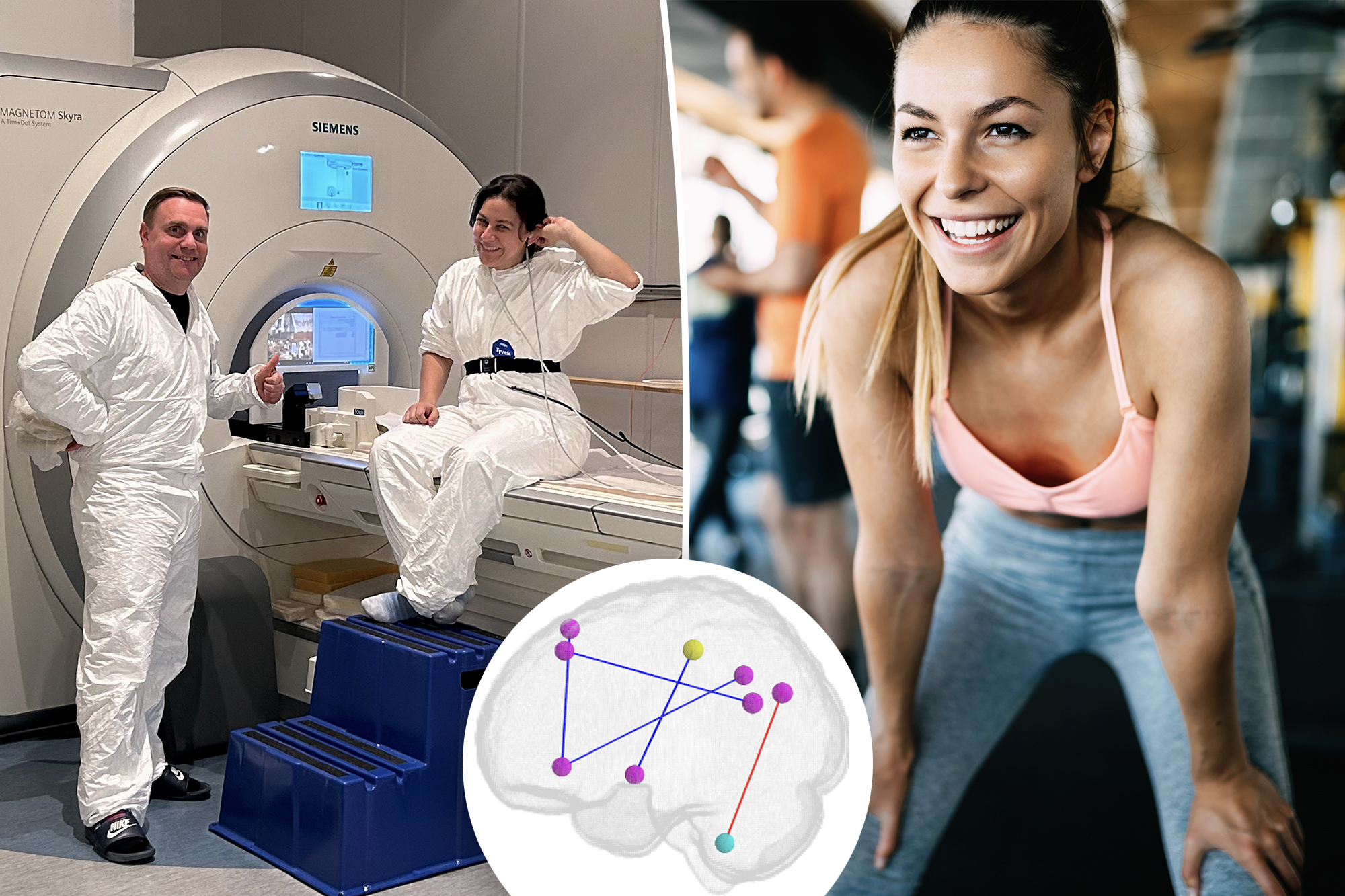
Too much on your mind to exercise? Maybe last week’s training is to blame.
A new study reports that our brains don’t respond to daily life in immediate, isolated bursts — instead, the effects of sleep, exercise, heart rate and mood can linger in our minds for more than two weeks. .
Researchers from Aalto University and the University of Oulu in Finland tracked the brain and behavioral activity of one neuroscientist for five months, finding that a workout or a restless night can affect attention, cognition and memory for days afterward.
“Our behavior and state of mind are constantly shaped by our environment and experiences. However, we know little about the response of the brain’s functional connectivity to environmental, physiological and behavioral changes at different time scales, from days to months,” said lead study author Ana Triana, who underwent brain scans twice in week, took mood surveys and wore technology that tracked her movements as she went about her daily routine.
From Triana’s data, the team identified two different patterns of brain response: a short-term wave lasting under seven days and a long-term wave of up to 15 days.
The short wave reflects rapid adaptations, such as how poor sleep briefly affects our focus. The long wave suggests more gradual and lasting effects, especially in areas related to attention and memory.
Physical activity was also found to positively affect brain region interaction, potentially influencing memory and cognitive flexibility.
Even slight changes in mood and heart rate left lasting impressions for up to 15 days, the researchers found.
The study found a strong link between heart rate variability – an indicator of how well the heart can adapt to changing situations – and brain connectivity, especially during rest.
The team proposes that stress management techniques can shape our brain’s connectivity even when we’re not actively focused on a task.
The findings were published Tuesday in PLOS Biology.
“Using wearable technology was crucial,” Triana said. “Brain scans are useful tools, but a picture of someone sitting still for half an hour can only tell so much. Our brains don’t work in isolation.”
She and her colleagues hope their method of tracking brain changes in real time leads to personalized health care, perhaps helping to detect mental health conditions early where subtle signs may be missed.
“We need to bring data from everyday life into the lab to see the full picture of how our habits shape the brain, but surveys can be tedious and inaccurate,” said study co-author and neuroscientist Dr. Nick Hayward. “Combining simultaneous physiology with repeated brain scans in a person is essential. Our approach gives context to neuroscience and gives great detail to our understanding of the brain.”
#Effects #sleep #exercise #remain #brain #weeks #study
Image Source : nypost.com